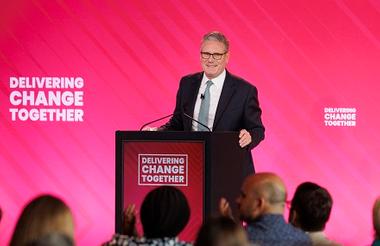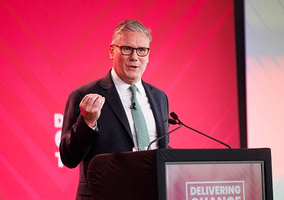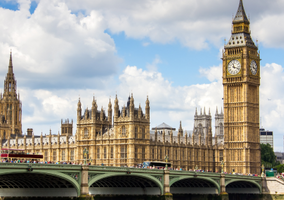Charity sector leaders have welcomed the launch of the Civil Society Covenant as a positive step forward, but warned that its commitments “mustn’t stall at warm words” and must be matched by action.
Today, the government launched the long-awaited covenant, which sets out how it intends to reset its relationship with civil society and work together in the national interest.
It also announced the formation of the Joint Civil Society Covenant Council and other measures to ensure the agreement’s implementation.
In their initial responses, sector leaders welcomed government pledges to partner with civil society and protect charities’ right to campaign but said the principles must be put into practice.
ACEVO: ‘Covenant is starting point, not end point’
Jane Ide, chief executive of sector leadership body ACEVO, said the covenant is “an important and positive foundation in resetting and reshaping the relationship between government and civil society”.
“Whilst the covenant sets a valuable foundation, it must be understood as a starting point, not the end point,” she said.
“We’ll continue to challenge, question and push for more because our members and the communities we serve deserve this.”
Ide added that the government cannot succeed in tackling inequality, improving public services or supporting stronger communities, “without a thriving, independent and empowered civil society”.
“The true test of the covenant will be in how it supports the government to deliver on these missions in practice, not just in principle.”
She welcomed the inclusion of the government respecting civil society organisations’ independence and legitimacy to advocate and campaign, and hold ministers to account, but said the ambition “mustn’t stall at warm words”.
Bond: ‘Concrete action must now follow’
NGO umbrella body Bond’s CEO Romilly Greenhill said “concrete action must now follow to protect civic space and strengthen our democracy”.
“While we welcome the government’s commitment to protect peaceful protest, it needs to reverse the erosion of protest rights that has taken place over the past few years,” she said.
“This includes abandoning plans to introduce yet more anti-protest measures through the crime and policing bill.”
Greenhill also welcomed the government’s commitment to respect civil society’s independence and legitimacy to advocate and campaign, adding that she hoped it “will end the unnecessary inclusion of anti-advocacy and gagging clauses in grant agreements”.
“The commitment to work with civil society to build a healthy democracy and overcome barriers to democratic participation is also welcome.”
She said “the promise to build genuine partnerships, based on engagement and long-term funding, has the potential for real change”.
“We’ve seen how all too often, civil society groups and the communities they work with are shut out of policymaking processes or brought in too late, and the disastrous consequences this can have.
“By working together from the beginning, we can co-create policy to ensure it meets the needs of communities here in the UK and globally.”
PBE: ‘Civil society’s contribution long undervalued’
Think tank PBE’s chief executive Matt Whittaker said civil society’s contribution to the economy and communities’ health and wellbeing “has long been undervalued”, resulting in the sector often being overlooked in policy.
He said this has been “a costly missed opportunity, given both the unique insight it provides into the challenges Britain faces and the solutions it can offer”.
“At PBE’s civil society and Labour summit in January 2024, Starmer pledged to reset the relationship between government and the sector – recognising the value of honest, sometimes critical, partnership.
“Now in government, we’re pleased to see the prime minister acting on that pledge with the launch of the Civil Society Covenant.
“How it operates in practice will, of course, be critical. But the very publication of the covenant signals a welcome shift: an acknowledgement of all that civil society offers, and a step toward a stronger partnership – and a stronger Britain.”
Mind: It must make space for all organisations
Mental health charity Mind’s CEO Sarah Hughes said the covenant is “a positive step forward” and that “the relationship between charities and government should be founded on positive impact for our communities”.
“When we get this relationship right, it can be transformative,” she said.
“Charities are more than service providers – our responsibility as advocates for some of the most vulnerable parts of our society is crucial.
“So, we welcome the assurance that those who challenge government won’t be shut out of funding opportunities; on making sure that all relevant groups are represented in policymaking; and on collaborative commissioning.
“It’s vital that these assurances are implemented meaningfully.”
Hughes added that for the covenant to succeed, its delivery must make space for the full sector’s range of voices, from grassroots organisations to large national charities.
CFG: ‘A turning point’
Caron Bradshaw, CEO of membership body Charity Finance Group, said that while the covenant “may not be perfect, it has been co-designed and shaped by many across the sector, and provides a real opportunity for closer and more productive collaboration with the government”.
“This is an important recognition of the vital role civil society plays in tackling some of the biggest challenges the country faces,” she said.
“This should be a turning point, and we will look at ways in which the covenant can be practically brought to life in the work the sector does – supporting the people and communities they serve.”
Saskia Konynenburg, incoming interim CEO of NCVO, said the government has today recognised “the crucial role” the voluntary sector plays in achieving a fair and equal society.
“The Civil Society Covenant lays out the ambition for how we put people and communities back at the heart of decision making, and lays a roadmap for a relationship where true lived experience forms the basis of designing good government policy,” she added.
NCVO’s outgoing CEO Sarah Elliott, who spoke at the launch event, said afterwards: “The publication of the Civil Society Covenant is an important milestone.
“It recognises the vital role civil society plays in shaping a fairer, stronger society and sets out principles for a much needed reset for a genuine partnership between government and the sector.
“Civil society should remain independent, with the freedom to speak up, challenge, and campaign. That should never be a point for debate, it’s vital for good policy, strong institutions, and a healthy democracy.
“Government has a key role in creating the conditions where this can happen: fairer commissioning, longer-term funding and better regulation. For this partnership to thrive, we need stability - and action to match today’s words.”
DSC: ‘Much more work needed’
Debra Allcock Tyler, CEO of the Directory of Social Change, said the covenant contains important commitments, including about diversity, equality and inclusion for both the government and civil society organisations.
She said: “We now need to take some time to analyse the final content and think about how it can be a stepping stone to a better relationship which delivers for the people we serve, which really is the whole point of any of this.
“There’s also much more work to do to ensure that the principles are abided by and our sector is fully plugged into the machinery for government policy-making and major decisions in the future, including locally.
“We need to see action and resources put towards it, not just words on the page.”
Related articles












